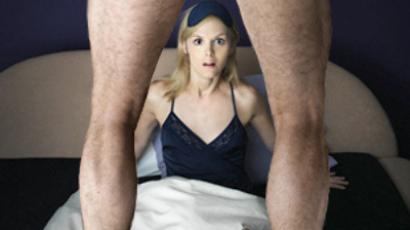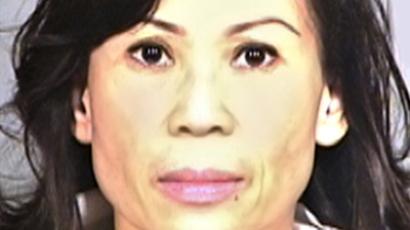Penis-injury lawsuit to rise again - federal appeals court

A man who severely injured his penis during a fall off a ladder can move forward with his lawsuit against Home Depot and the equipment’s manufacturer because the case had been thrown out improperly by the previous judge, a federal appeals court ruled.
In 2008, Kurt Stuhlmacher’s parents purchased a ladder from Home Depot so that he could work on the roof of a cabin he was building for them. Stuhlmacher was using the ladder for the first time and had just begun to put together the rafters when the ladder fell, the court documents said. He grabbed on to a rafter for a moment and then fell on the right front rail of the ladder, striking his groin. As a result of the fall, Kurt injured his shoulder.
“The more significant injury, however, was to his penis,” Judge Ann Williams wrote for the three-judge panel. Doctors later diagnosed Stuhlmacher with Peyronie’s disease, “which causes extreme pain during erection and prevents him from having sexual intercourse.”
The ladder, Stuhlmacher and his wife discovered hours after the incident, had come apart during the fall. The couple brought a personal injury action against Home Depot and the ladder’s manufacturer, Tricam Industries. The complaint alleged that the rivets holding the support arm on one side of the ladder failed and caused the ladder to collapse.
At trial, Stuhlmacher testified that the ladder "just, like, fell out - fell this way out from underneath me to the left," and he did not see whether it split before or after his fall because he tried to hold on to the rafter.
The couple’s expert witness, Dr. Thomas Conry, who has a doctorate in mechanical engineering, testified that the ladder was defective, which likely caused Stuhlmacher to sense instability and involuntarily shift his weight. The magistrate judge, however, struck Conry’s testimony, finding that the mechanical engineer’s explanation of how the accident occurred did not “square” with the plaintiff’s testimony that the ladder shot out to his left.
Court: “In your opinion, when did the actual separation of the spreader bar from the rail occur?”
Dr. Conry: “I cannot say for sure. I know it was under way, but did it — did it happen at the point that he fell off? Did it happen, you know, a fraction of a second after that? I can’t say. All I can say is that the material had that crack in it and the bracket under the load was prying that rivet through.”
In striking Conry’s testimony, Magistrate Judge Andrew P. Rodovich wrote, “The plaintiff never testified that the ladder became unstable, that the ladder in any way shook. His testimony was that all the sudden the ladder went to the left.” The US District Court magistrate judge reasoned that even if the ladder was defective in the way Conry said it was, the plaintiffs had failed to show a causal link between the alleged defect and the accident.
“We do not agree. Dr. Conry’s and Kurt’s testimony are easily reconcilable, particularly since the fall happened so quickly,” Williams countered in the appeal decision.
Because the testimony was stricken, the Stuhlmachers did not have any evidence showing causation, so the judge entered judgment as a matter of law for the defendants.
Williams noted that it should have been up to the jury in the trial to determine whether the expert’s theory is correct. “Here, the judge improperly expanded his role beyond gatekeeper to trier of fact.”
"Kurt's fall happened very quickly," the appeals court judge wrote. "He testified that he did not see or hear anything, but that the ladder suddenly moved to his left. His expert then reconstructed what happened and gave his opinion on how an alleged defect could have caused the accident. It is not the trial judge's job to determine whether the expert's opinion is correct."
The court said that Kurt was too busy falling to notice when the ladder broke apart, so he could not attest to how and when the ladder split.
“We hold that the magistrate judge abused his discretion in striking Dr. Conry’s testimony. We reverse the judgment of the district court and remand the case for a new trial,” the three-judge appeals panel ruled.
A court date for the retrial in US District Court has not been set.














